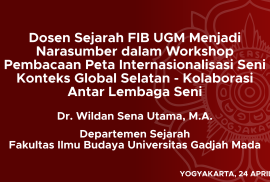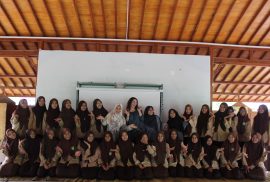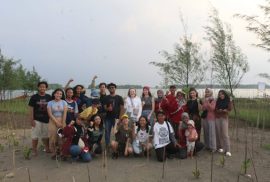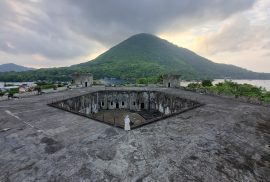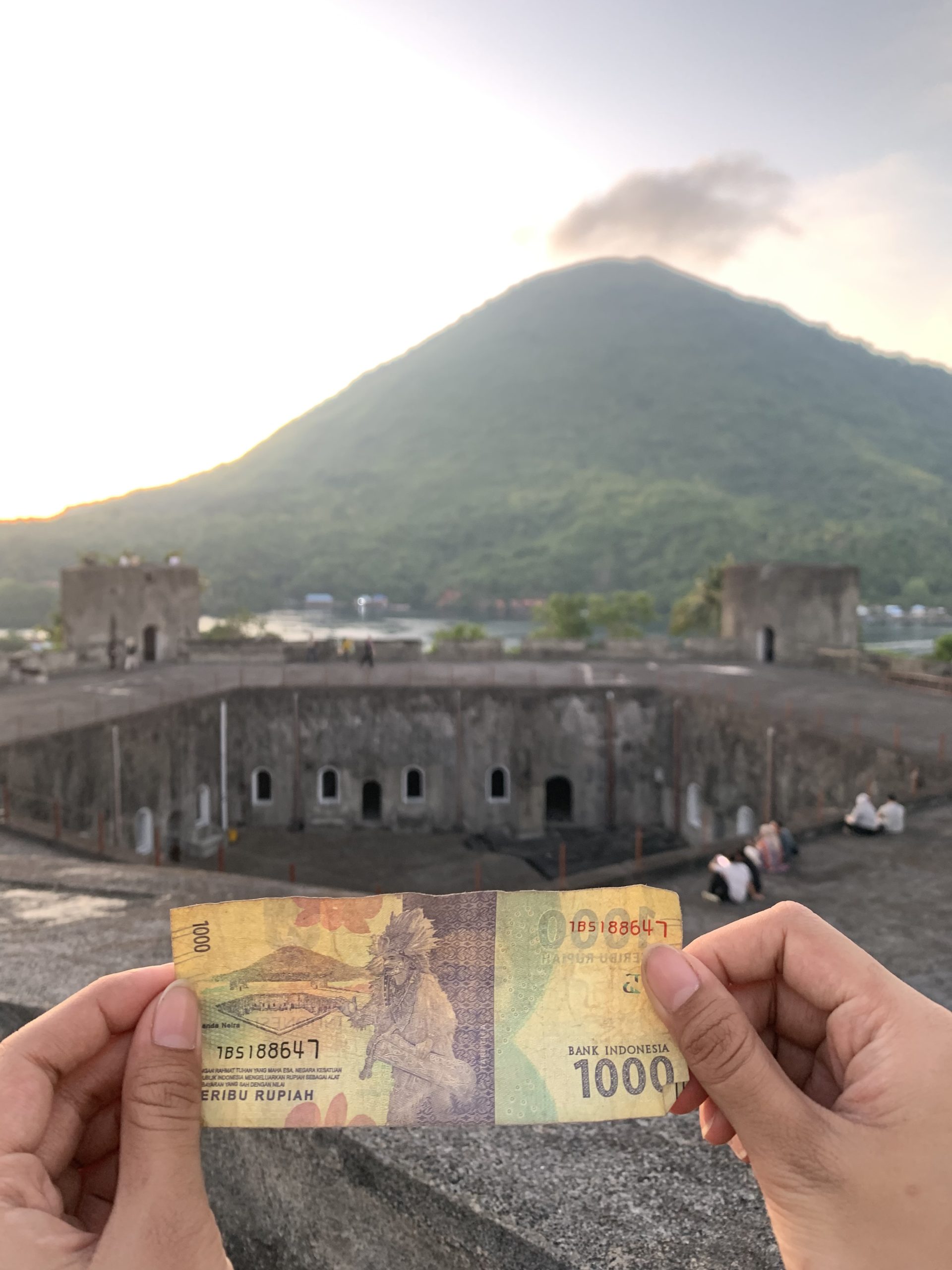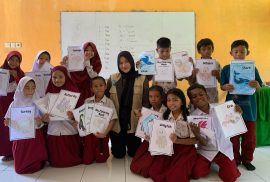Yogyakarta, Wednesday, April 24, 2024 – Dr. Wildan Sena Utama, M.A., a lecturer in the Department of History, featured at the workshop titled Mapping the Internationalization of Art in the Global South Context – Collaboration Among Art Institutions. Organised by the Biennale Foundation Discussion, the event aimed to disseminate ideas on why the values of the Bandung Spirit remain relevant in international politics and Indonesia’s foreign policy. It also served as a reflection on the upcoming 70th anniversary of the Asia-Africa Conference next year, and how to revive the Bandung Spirit at the grassroots level.
Dr. Wildan delivered his presentation at the historic Savoy Homann Hotel, one of the accommodations used by Asian and African leaders attending the 1955 Bandung Conference. During the workshop, he analyzed key values from the Asia-Africa Conference that are still important to promote and spread at the grassroots level today. These values include decolonization, world peace, and international cooperation—three principles from the Bandung Spirit that remain highly relevant. The Asia-Africa Conference Museum, managed by the Ministry of Foreign Affairs, regularly organizes discussions to keep the spirit of the Bandung Conference alive, recognizing its continued significance in today’s global political context.
The presentation was followed by contributions from representatives of the National Archives of Indonesia, the Indonesian Ministry of Foreign Affairs, lecturers from UNPAD’s International Relations department, cultural figures from Bandung, and heritage activists.

